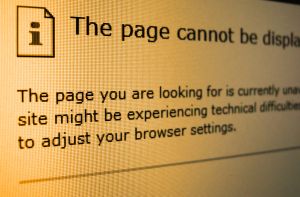So you have your new website. You’re ready to sell your wares. The best scenario has you quitting your job soon. The very worst scenario has you at least earning a part time income.

Day One passes with no sales.
Day Two passes with the same results.
As days continue to pass, you grow despondent and worried.
You tweak your keywords and write some blog articles that link back to your product pages. Heck you even add a blog to your own site.
You start talking about the new products and companies you’re dealing with focusing towards discussing things that directly relate to the site and products, with a few links coming back to the site’s blog.
Nothing changes on the sales reports and that’s what you were drilling for in the first place so you want those drops to come faster.

You check your SEO list:
- your sitemap was uploaded to Google
- you’re registered with directories
- you’ve checked and re-checked for duplicate content
- your keyword research is spot-on
- your site has user-friendly navigation
- you’ve done the heat maps to verify attention is focused on the right elements
- your content and everything important to the users loads lightning-quick
…You cannot imagine what could possibly be wrong.

Taking a closer look:
The big competitive terms like ‘widgets online’ are getting into the single digit page #s on the search results causing a naturally matching growth in visits and some sales.
You Google an actual product name/long-tail buy phrase ie. ’42 month emergency widget supply’ from one of your product pages just to verify that they have been cached, check the descriptions, and get a customer’s perspective.
In doing so you find that your site appears somewhere on the first page of Google organic results.
You click on the link cursing yourself for not filling in the meta tag box to get a crafted vs. automated description.
It takes you to your site, but the page isn’t what you expect.
The page shows only a broken link.
How could this be?

You double and triple check by performing other exact product name searches. The results are all the same. Somehow, Google is returning broken links. Why? Take a few guesses before you continue…
Let’s see how you did. Shopping cart host companies offer great features. Many configuration items are automated for ease of use and administration. Items such as page names, page titles, descriptions, keywords, URLs, etc., are often created automatically, as a user or robot navigates through your site from page to page. Other hosts create the pages upon inventory upload or site configuration change. Often, a randomly generated number is appended to the end of these items, so that each may be distinguished from other items that might potentially have the same name.
Think about the consequences of this:
– How can your potential clients or customers find your products if they always get a broken link page?
– Will potential clients or customers overlook the broken link and still trust the quality of your site, products, check-out processes, shipping, return policies, etc.?
– How can you create and run an effective back link campaign if your links or page names are never the same?
If you don’t do full inventory updates very often, or you don’t change site configuration settings very often, your links will remain the same for long periods of time. However, this scenario may be even more insidious than frequent changes, something that’s a positive signal to your clients and search engines. You may see search results improve over time and even transition some traffic to sales only to find all your progress destroyed when you finally do get around to updating inventory or changing a site configuration.
TL;DR In a nutshell: you need to keep your links static, avoid URL changes at all costs, and make 301s or canonical redirects when a link absolutely must change.
Whew! Okay so that seems like a lot to digest, but this is just round one of what we expect to be a 3 part series on organic SEO strategies for 2011. Google really is improving the search results and every step you take towards working with the changes should make your site better and your on-line business stronger. What better incentive could you have for watching this space and reading on as we follow an organic website competing successfully against paid advertisers in the post-panda search results?
